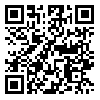

BibTeX | RIS | EndNote | Medlars | ProCite | Reference Manager | RefWorks
Send citation to:
URL: http://jdisabilstud.org/article-1-2069-en.html
2- Department of Educational Psychology and Counseling, Faculty of Psychology and Educational Sciences, University of Zahedan
Background & Objectives: Education is a significant part of the lives of children and young people. Besides, evidence suggests that the process of education and life in school is a source of stress and anxiety for students. Exam anxiety reduces students' productivity and causes mental and emotional harm. Exam anxiety in educational settings concerns physiological, emotional, cognitive, motivational, and environmental processes; thus, test anxiety threatens students' self–esteem and academic performance. Research indicated that two training approaches could help students reduce anxiety. Metacognitive and mindfulness–based cognitive therapy plays an essential role in informing individuals about thoughts, behaviors, emotions, and feelings. Accordingly, the higher the cognitive abilities of learners, the more successful the learning process will be. In other words, the learner must play an active role in learning. Furthermore, they must learn to evaluate their learning. Thus, the present study aimed to compare the effects of mindfulness–based cognitive therapy and metacognitive therapy on students' test anxiety.
Methods: This was a quasi–experimental study with pretest–posttest and a control group design. The statistical population was 220 students with test anxiety referring to counseling centers in Kerman Province, Iran, in 2019. The research sample consisted of 45 subjects who were selected by considering the minimum sample in experimental designs and qualified volunteers and were randomly divided into three groups of experimental and control (n=15/group). The study's inclusion criteria were no acute psychological disorders (at the discretion of the psychologist), obtaining parental satisfaction, and the ability to participate in training sessions. The study's exclusion criteria included unwillingness to continue training, presenting acute psychological disorders, and unwillingness to participate in training sessions. In the pretest and posttest stages, the Test Anxiety Questionnaire (Friedman and Bendas–Jacob, 1997) was run for all participants. For one experimental group, ten 45–minute metacognitive therapy sessions were performed. 8 60–minute mindfulness–based cognitive therapy sessions were conducted for the other experimental group. No intervention was performed for the control group. Descriptive statistics (frequency, percentage, mean, & standard deviation), also, Chi–squared test, univariate analysis of Covariance (ANCOVA), and Bonferroni post hoc test were applied in SPSS at the significance level of d 0.05 to analyze the obtained data.
Results: The current research results indicated that respecting test anxiety, the difference between the two experimental groups, including metacognitive therapy and mindfulness–based cognitive therapy, and the control group was significant (p<0.001); however, no significant difference was observed between the two experimental groups (p=1.000). Accordingly, the effect of both interventions on reducing students' test anxiety was the same.
Conclusion: Based on the research findings, metacognitive therapy and mindfulness–based cognitive therapy effectively reduced test anxiety and created a significant improvement in reducing test anxiety symptoms in students. Therefore, these methods can be applied to improve students' academic performance and mental health with test anxiety.
| Rights and permissions | |
 |
This work is licensed under a Creative Commons Attribution-NonCommercial 4.0 International License. |


